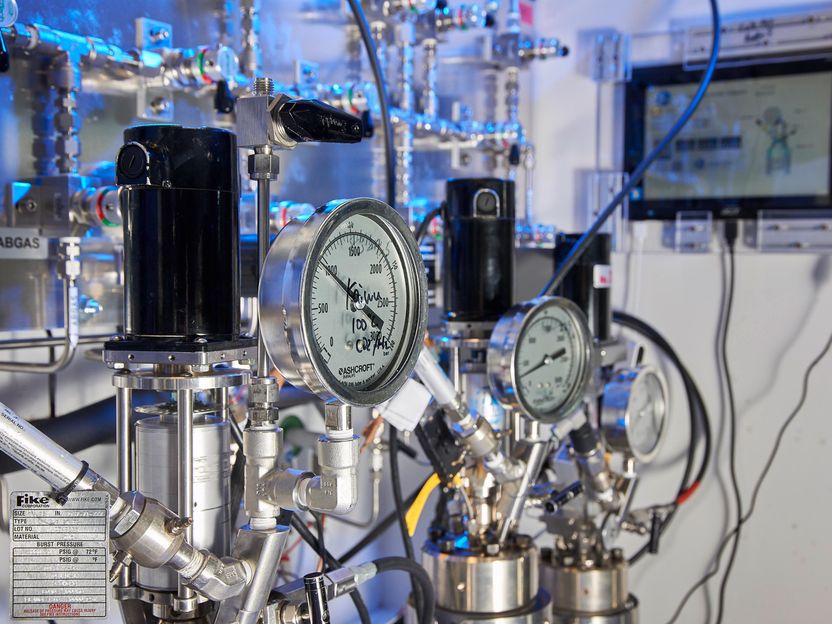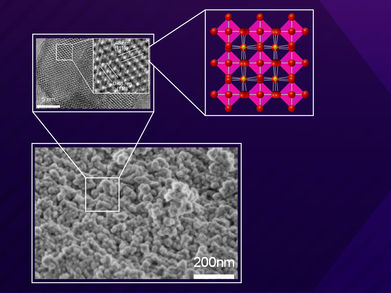Evonik and LIKAT Discover New Variant of Hydroformylation
This opens up a cost-effective and environmentally friendly route to aldehydes and alcohols
A team of researchers from Evonik and the Leibniz Institute for Catalysis (LIKAT) has once again achieved a breakthrough in the field of Hydroformylation. Hydroformylation is one of the most important reactions in industrial organic chemistry. Unsaturated compounds are converted with synthesis gas to aldehydes and alcohols. It has now been demonstrated for the first time that the catalyst in this reaction is stable even at low pressures. This opens up a cost-effective and environmentally friendly route to aldehydes and alcohols. The research team reports on this in the journal SCIENCE.

Pressure reactors at the Leibniz Institute for Catalysis - The reaction is initially carried out on a laboratory scale and is subsequently transferred to a larger scale.
LIKAT/Nordlicht
Until now, scientists assumed that this reaction, if catalyzed with cobalt, could only be carried out under high pressure conditions without the catalyst decomposing. This has been disproved by Prof. Dr. Robert Franke, head of hydroformylation research at Evonik, together with research partners from LIKAT, Dr. Baoxin Zhang and Dr. Christoph Kubis.
"With this discovery, we have discovered new process options for hydroformylation," says Franke, who is also a professor of chemistry at Ruhr University in Bochum. "In the future, it may be possible to make this large-scale reaction much more economical and environmentally friendly. Developing these processes is our task for the next few years."
The researchers succeeded in demonstrating for the first time that cobalt carbonyls, very inexpensive compounds for the catalysis of hydroformylation, are active and stable even at low pressures. The key to this discovery was the development of special spectroscopic measurement methods and associated mathematical tools for data analysis.
High-pressure processes using cobalt carbonyls as catalysts could be replaced in the future by new processes at lower pressures. These new processes would then be more cost-effective, energy-efficient and thus more sustainable than in current practice. At Evonik, this would have implications for the production of long-chain alcohols, such as the oxo alcohol isononanol (INA), which is used in the manufacture of plasticizers, among other things.
Due to the particular importance of this discovery, the journal Science published the results of the project. This is the second publication by Franke and colleagues from LIKAT in Science on carbonylation reactions. In 2020, the team succeeded in the so-called "Dream Reaction", the direct carbonylation of 1,3-butadiene.
Original publication
Other news from the department science

Get the chemical industry in your inbox
By submitting this form you agree that LUMITOS AG will send you the newsletter(s) selected above by email. Your data will not be passed on to third parties. Your data will be stored and processed in accordance with our data protection regulations. LUMITOS may contact you by email for the purpose of advertising or market and opinion surveys. You can revoke your consent at any time without giving reasons to LUMITOS AG, Ernst-Augustin-Str. 2, 12489 Berlin, Germany or by e-mail at revoke@lumitos.com with effect for the future. In addition, each email contains a link to unsubscribe from the corresponding newsletter.



























































